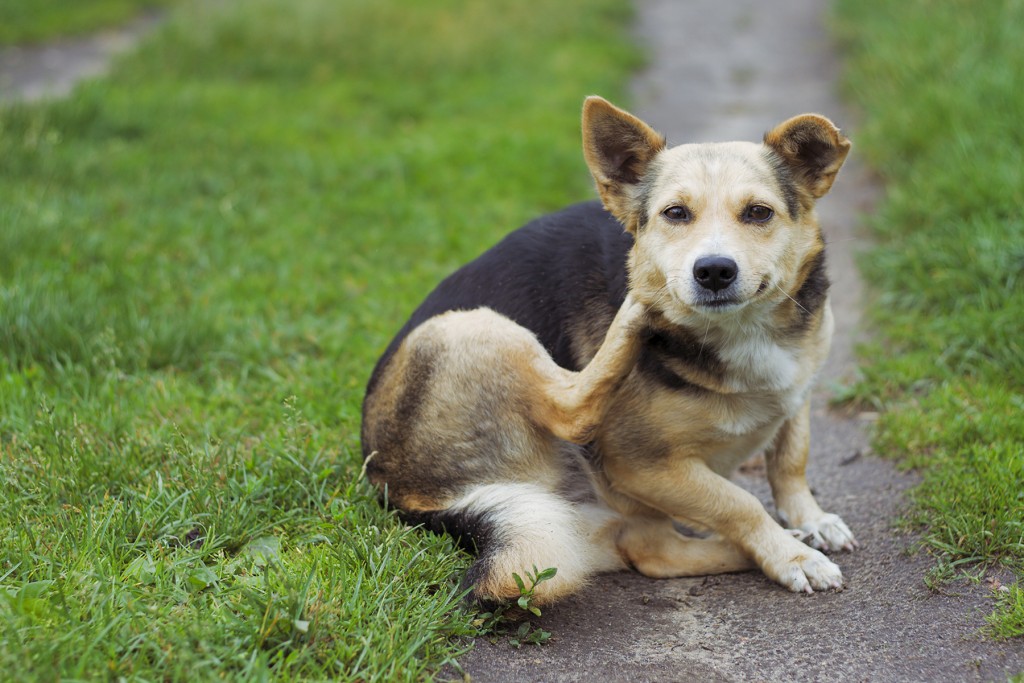Spring Allergies In Pets
 Spring allergies aren’t limited to just humans, Many pets experience this yearly problem. By paying attention to your pet’s symptoms and taking action quickly, it’s possible to get a handle on spring allergies in pets.
Spring allergies aren’t limited to just humans, Many pets experience this yearly problem. By paying attention to your pet’s symptoms and taking action quickly, it’s possible to get a handle on spring allergies in pets.
Common Spring Allergies in Colorado
Common spring allergies for pets in Colorado include tree pollen, dust mites and fleas:
- Severe tree pollen allergies: Cottonwood and cedar, impact pets from March through early summer.
- Dust mites: Year-round indoor concern.
- Fleas: Colorado pets face flea allergies during their peak season, March to September.
Symptoms Of Spring Allergies In Pets
Spring allergies most commonly affect our pets’ skin. However, the symptoms can manifest in a variety of ways, including:
- Itchy, red, scabbed, or swollen skin
- Excessive scratching or licking
- Paw chewing/licking
- Hair loss
- Pawing at the face, eyes, or ears
- Head shaking
- Red or inflamed ears
- Sneezing
- Red, watery eyes
- An unpleasant odor
Hot Spots
During spring allergy season, watch for hot spots, areas your pet excessively licks or scratches. These can quickly develop into secondary skin infections if left untreated, causing your pet considerable pain and discomfort.
Diagnosis And Treatment
Spring allergies can pose a serious health risk to your pet. If you suspect your pet is suffering from allergies, call Lone Tree Veterinary Medical Center right away.
There are a variety of ways to test for allergies in pets, ranging from blood and skin tests, to a full scratch panel. Your veterinarian will discuss these options with you and help you to come up with the right treatment plan for your pet.
Depending on your pet’s condition, we may prescribe allergy medication or direct you in the use of over-the-counter antihistamines (don’t attempt to give your pet an antihistamine, or any medication, without first consulting your veterinarian). Medicated shampoo, cream, or spray may also be advised.
You can help to relieve your pet’s symptoms at home by:
- Soak your pet’s paws every day to ease inflammation and prevent allergens from being tracked into the home
- Bathe your pet regularly – using a hypoallergenic or medicinal shampoo and conditioner as recommended by your veterinarian – to remove allergens from the skin and soothe inflammation.
- Clean and vacuum your home on a regular basis to prevent the buildup of allergic triggers.
- Provide your pet with the highest quality nutrition possible; consider supplementing with an omega-3 fatty acid supplement (found in fish oil). Your veterinarian can help you select the one that best fits your pet’s needs.
Don’t Forget To Enjoy Spring!
Springtime allergies can be a huge burden for our pets, but your team at Lone Tree Veterinary Medical Center is here to help. With proper diagnosis and treatment of your pet’s allergies, we can relieve his or her suffering, leading to a happier and more playful spring for both of you!



